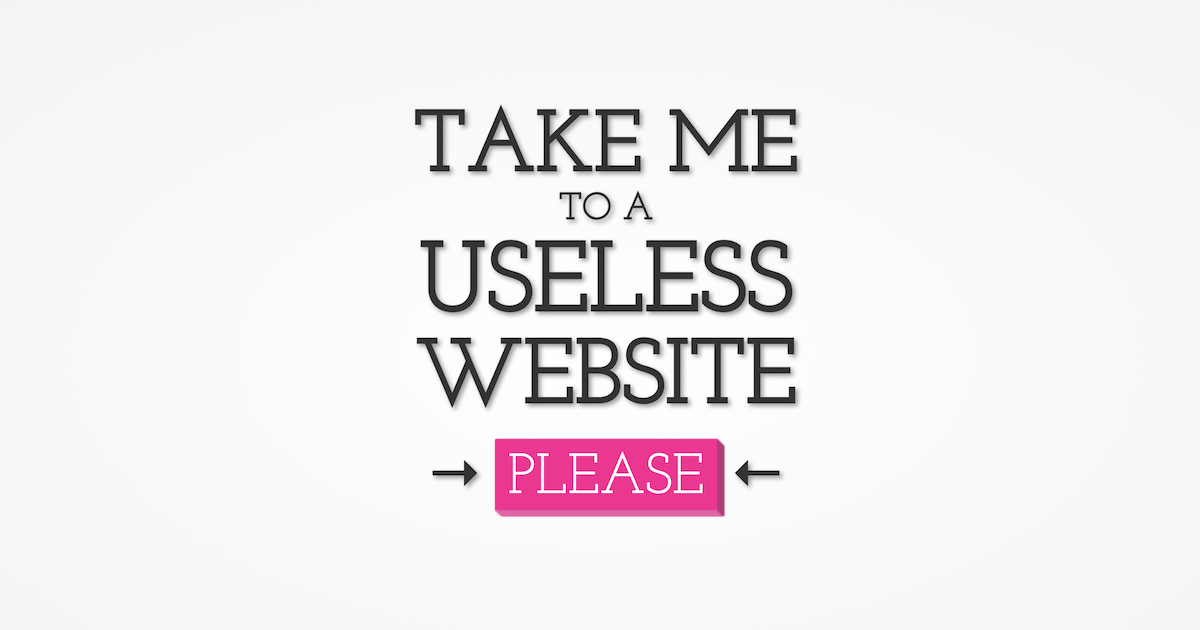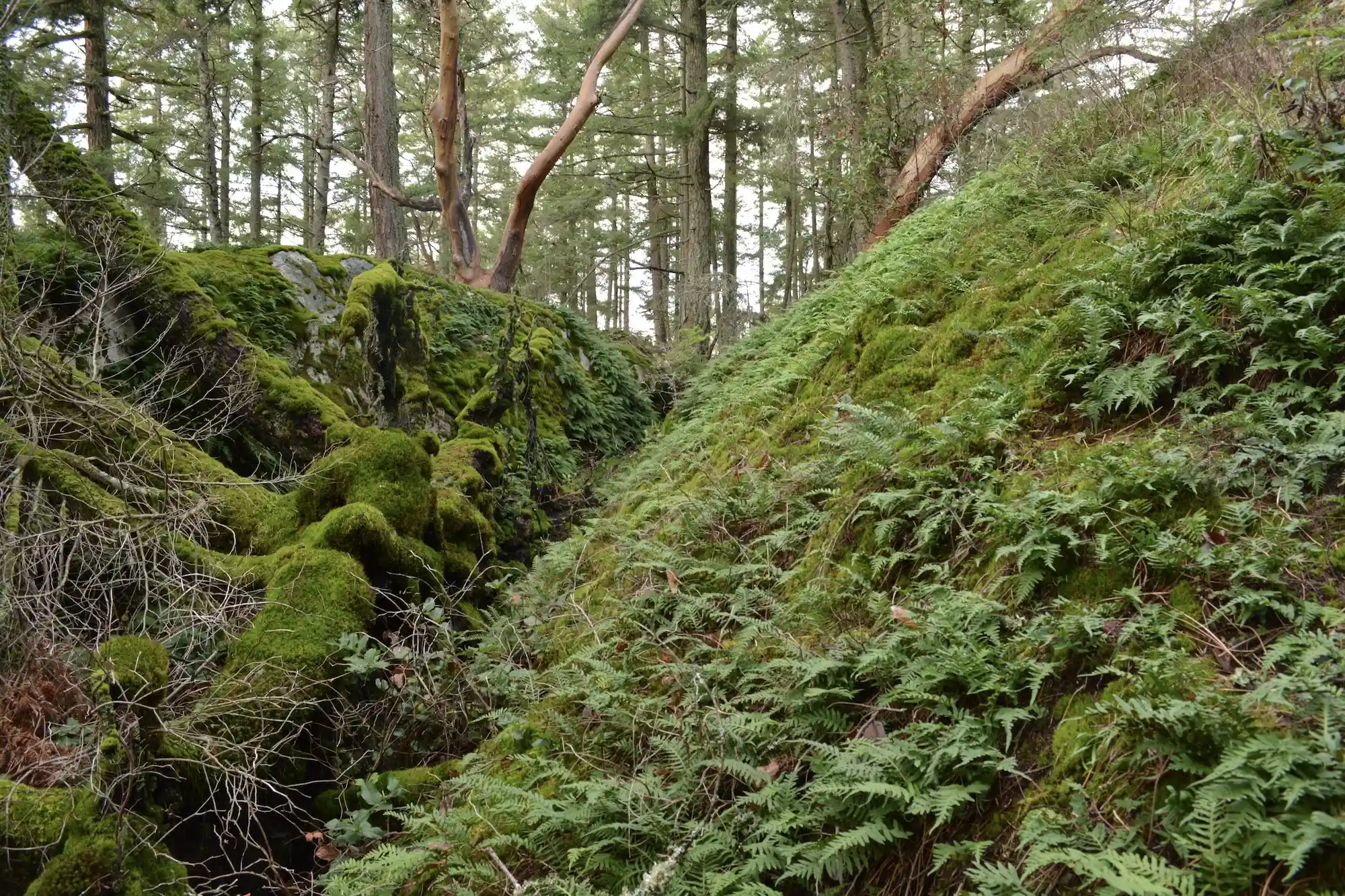I’ve been hearing this term a lot lately and, frankly, I think it is a fairly myopic view. If you live in a walled garden such as Facebook, Instagram, TikTok, The Artist Formally Known as Twitter, etc. then yes, it’s easy to the feel that the internet is a barren hardscrabble where all efforts must be made to conserve even the tiniest shrub of originality. However; simply peaking over these walls will reveal a vast untamed wilderness waiting to be discovered/rediscovered.
My internet experience began around 2000 when I got a @hotmail email. I could barely read and write but there it was: email. A few years later I learned to type and to type fast by chatting with both friends and strangers on AIM. It was around 2003 or 2004 that I really started to “be online” and it coincided with my learning a bit of HTML. Here was this thing you could do at home without talking to anyone, lobbying anyone, going through gatekeepers; you could put it online and anyone in the world could see it.
When people talk about a wild internet I think this and everything that came before is the era most people are talking about. It was a bit of a wild-west, there were few best practices, and even those were contested and debated. Fewer people were there for the money. Of course the dot-com bubble had already burst so it’s not like people weren’t aware of the potential to make large fortunes on the internet, but there wasn’t a lot of pressure on the individual to make money. People wrote blogs because they had something to say, or because they had nothing to say but wanted to shout into the void. People learned HTML not to become developers but because they had a passion for something and needed to get that thing online. People dumped snippets into Geocities forms to create weird and wonderful pages. Later, even MySpace; the closest thing to the era’s Facebook, allowed users an insane amount of control over the look and feel of their profiles. It was a little messy, but it was wild.
Gmail and Google Maps had yet to be released, MySpace was nascent, and while there were were other social network prototypes they didn’t “capture” users the same way they do today. Social networks, these silos, just weren’t compelling enough to spend hours a day on. So you surfed. How did one surf? People had blogrolls which guided you to their favorite blogs. There were director pages and recommendations. Much like wandering a library rather than approaching a librarian directly one spent a lot more time aimlessly wandering.
Eventually Google et, al. got so good you didn’t need to rely on third parties for recommendations, you didn’t need to browse as much, you could type in a query and get a result. The results were so good that you didn’t even need to go past the first page, and within a few years you didn’t need to get past the first result. At this stage it may feel like something was lost, that weirdness, those early sites, where did they go? Was the internet finally tamed?
They were still there.
At first the algorithm was designed to return useful results. This was, in large part, a worthwhile step. It disenfranchised a lot of the wild and weird internet but it made the place as a whole a lot more easy to juice. Answers were now literally at your fingertips, not several blocks away.
That’s when the enshittification began. Enshittification, coined by Cory Doctorow, is the process by which platforms die:
- They begin by being good to their users
- Then they begin to abuse their users to make things better for their business partners
- Then they abuse their business partners to gain more value for themselves/shareholders
- Then they die
As Google became less of an experiment in finding things and more of an engine for making money the search experience began to slowly degrade. More and more of the first results were advertisements, those advertisements became less and less relevant to the query. Additionally, anyone trying to “rank” highly in the Google search results had to play by their rules. We’ve seen several iterations of Page Rank’s bizarre rules from link stuffing (where pages would put an insane number of links to related/the same content), to the latest trend where long-form content is rewarded. (This is why you have to scroll through someone’s life story to get to the recipe).
We were so hooked on the search that we barely noticed that the experience was degrading! Searching was so easy and the results were still so good that we put up with more ads, more invasions on our privacy for worse results. And all of this algorithmic gaming to make Google as much money as possible continued to cut out the weird and wonderful websites that made the original internet wild.
But they were still there.
The latest trend in search is AI. For two years I used a web browser called Arc, early this year with much fanfare they released an iOS app for search with an accompanying video about the future of the internet. Their vision is to have you type in your query, and have AI search for you and return a generated answer to your query. The pitch is, “no more searching, no more sifting through bad results”. Ironically, search has become so bad we need AI to do the most basic thing it’s there for. Perplexity AI and and a host of others are promising the same thing. This is not a net positive for the internet. If you are interested in re-wilding the internet you need to do more hunting not less. An AI that promises generative answers to search queries is far worse for the health of the internet than Google’s crappiest results, it is eliminating sources, content, experts, humans and anything else that might make the internet weird. This is a dark and dangerous path for a wild internet.
But the wild internet is still there. You can’t find it in walled gardens, get rid of Facebook, jump ship from Instagram and stop looking for answers with Google. You will never find the wilderness if you remain in the concrete jungle. Where is the wild internet?
It’s everywhere entrenched tech isn’t. I realize that’s a bit daunting, so where to start? That’s a huge question and it deserves a huge answer. As I write this blog I’m sure I’ll dive into more detailed answers but below I’ve provided a few of my favorites as a jumping off point:
Marginalia Search is a small DIY search engine experiment that focuses on non-commercial sites you didn’t know existed.
Kagi is a bit more mainstream, you get 100 searches for free/month after that it’s about $10/month. Mostly relying on Bing and other search providers it strips most of the cruft from these services. Kagi is powerful because you can create your own rankings and filters, what do you want to see? What do you want to see more of? Tired of StackOverflow? Rank it low. Like The Guardian. Rank it high.
IndieWeb is a wealth of knowledge on the wild internet and a good place to start learning.
Micro.blog imagine Instagram, Twitter, and Tumblr rolled into one also with podcast hosting. Micro blog is an easy way to get thoughts out of your head and into the world along with a supportive and interesting community. As is required with an open internet, there is no lock-in everything is transportable and it connects seamlessly with several “walled gardens” so you can cross post to Threads if you wanted.
The Useless Web it is what it says it is.
RSS I believe that RSS is one of the most powerful tools we have in the wild internet. RSS deserves a post in it’s own right but give a high level overview here. RSS stands for RDF Site Summary or better yet Really Simple Syndication. RSS lets you subscribe to feeds and receive an update every-time new content is added. This allows you to curate your own experience for online reading, no algorithms, you choose what you want and posts are shown in chronological order. You’ll need an RSS reader; I use NetNewsWire but other good options are FeedBin (paid) and The Old Reader (free), I believe Vivaldi has one out of the box as well (Safari used too 😢). Once you have a reader you start adding feeds, most content that gets updated regularly will have an RSS feed it can usually be found by adding /rss or /feed to the end of the url. You can try this here on my site!
A few of the feeds I read regularly are:
Those are just a few general interest ones to get you started. I’ve curated about 30 that feeds that I actively follow some people have just one or two others have hundreds.
If you’ve made it this far, I sincerely thank you. If you have questions about the open internet, RSS feeds, or anything else please drop me a line; trav@hey.com
Marginalia Search
search.marginalia.nu is a small independent do-it-yourself search engine for surprising but content-rich websites that never ask you to accept cookies or subscribe to newsletters. The goal is to bring you the sort of grass fed, free range HTML your grandma used to write.
search.marginalia.nu Kagi Search - A Premium Search Engine
Better search results with no ads. Welcome to Kagi (pronounced kah-gee), a paid search engine that gives power back to the user.
A Premium Search Engine
 IndieWeb
The IndieWeb is a people-focused alternative to the “corporate web”.
IndieWeb
IndieWeb
The IndieWeb is a people-focused alternative to the “corporate web”.
IndieWeb
 Micro.blog
Post short thoughts or long essays, share photos, all on your own blog. Micro.blog makes it easy, and provides a friendly community where you can share and engage with others.
Micro.blog
Micro.blog
Post short thoughts or long essays, share photos, all on your own blog. Micro.blog makes it easy, and provides a friendly community where you can share and engage with others.
Micro.blog
 The Useless Web
The Useless Web Button… just press it and find where it takes you. The perfect button for the bored, or those looking to find useless sites online!
The Useless Web
The Useless Web
The Useless Web Button… just press it and find where it takes you. The perfect button for the bored, or those looking to find useless sites online!
The Useless Web






